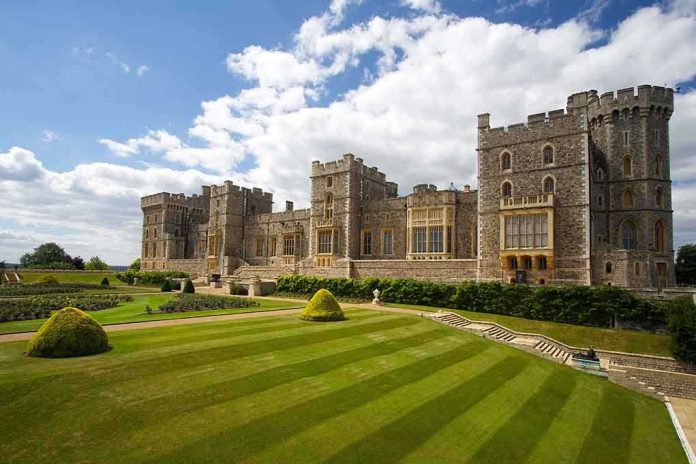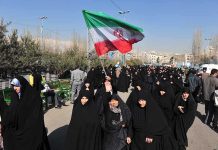
Prince Harry and King Charles may finally be inching toward peace, but the so-called ‘secret’ summit between their top aides reads more like royal theater than a genuine family reunion—leaving the British monarchy’s wounds as visible as ever.
At a Glance
- Senior aides to Prince Harry and King Charles III held informal talks in London, marking a rare move toward reconciliation.
- The two sides reportedly met at a private club for “casual drinks,” not formal negotiations, after years of public acrimony.
- Deep trust issues, public criticism, and security concerns still divide Harry from his royal family.
- The British monarchy’s public image remains shaky, especially with King Charles III’s ongoing health issues.
Royal Rift Moves from Tabloid Headlines to Private Club Tables
After five years of family drama worthy of a daytime soap, the inner circles of Prince Harry and King Charles III finally sat down for what’s being called an “informal” meeting. The location? London’s Royal Over-Seas League, a private club far from the prying eyes of the public or—maybe more importantly—the British press. If you believed the monarchy was above such reality-TV antics, think again. The high-level huddle included Harry’s chief of staff, Meredith Maines; King Charles’s communications secretary, Tobyn Andreae; and the Sussexes’ UK press chief, Liam Maguire. The agenda was as loose as Harry’s relationship with royal tradition: no set topics, just “casual drinks.” As if a few pints could wash away years of accusations, book deals, and Netflix specials.
Both camps reportedly want to “move forward,” according to anonymous sources who seem to leak more than the palace roof in a London rainstorm. But let’s not forget, this is the same family that made global headlines when Harry and Meghan bailed out of Buckingham Palace back in 2020, then promptly aired the dirty laundry on Oprah. Reconciliation does not come easy when your family feuds are syndicated worldwide. Still, the mere fact that aides are talking—rather than lawyers or publicists—suggests someone in the palace finally realized that endless public squabbling isn’t winning the monarchy any fans.
Broken Trust and Family Drama Still Dominate
The royal rupture traces back to when Harry and Meghan Markle slammed the door on official duties and moved to California, seeking financial freedom and a little privacy—ironically, just before launching a global media blitz. The 2021 Oprah interview threw gasoline on the fire, with allegations of racism and emotional neglect. Harry’s memoir, “Spare,” published in 2023, further deepened the divide, with Harry accusing his father of self-interest and his stepmother, Queen Camilla, of planting stories in the press. Meanwhile, Prince William is reportedly as open to reconciliation as a Buckingham Palace guard blinking on duty. The royal family’s trust is so broken, according to experts, that confidential conversations with Harry are now approached like a high-stakes game of chess—every move scrutinized, every piece at risk.
Security remains another sticking point. Ever since Harry’s royal exit, his family’s UK protection was downgraded, a move he cited as a major concern. Add King Charles’s cancer diagnosis to the mix, and the urgency of a family truce suddenly takes on a more serious tone. But let’s be honest: in a family so practiced at saying nothing, the silence from both Buckingham Palace and the Sussexes about the aides’ meeting is deafening. The British public, long tired of the royal soap opera, is left wondering if this is a genuine olive branch or just another PR maneuver meant to stop the bleeding.
What’s Next for the Monarchy—and Does Anyone Really Care?
There’s no question the monarchy could use a break. With King Charles’s health hanging in the balance and public support for the Crown nowhere near its glory days, the stakes for a royal reconciliation are higher than ever. Royal watchers—and let’s face it, the monarchy’s PR machine—hope these informal talks will lead to something resembling unity, or at least a ceasefire in the media war. But trust, once shattered, doesn’t mend over cocktails. Experts say the real issue is whether Charles and William can ever believe Harry again, especially after years of public accusations. The monarchy’s own survival may depend on its ability to project stability, but the unresolved feud keeps the institution looking fractured and out of touch.
For the Sussexes, the outcome could affect everything from their security arrangements to their standing in the public eye. For the British people—and the millions of Americans who watch royal drama like it’s the Super Bowl—the prospect of another reconciliation attempt is met with a collective shrug. After all, how many times can you cry “royal rift” before people stop caring? Still, the fact remains: if the monarchy can’t heal its own family wounds, what hope does it have of remaining relevant in a modern world?










